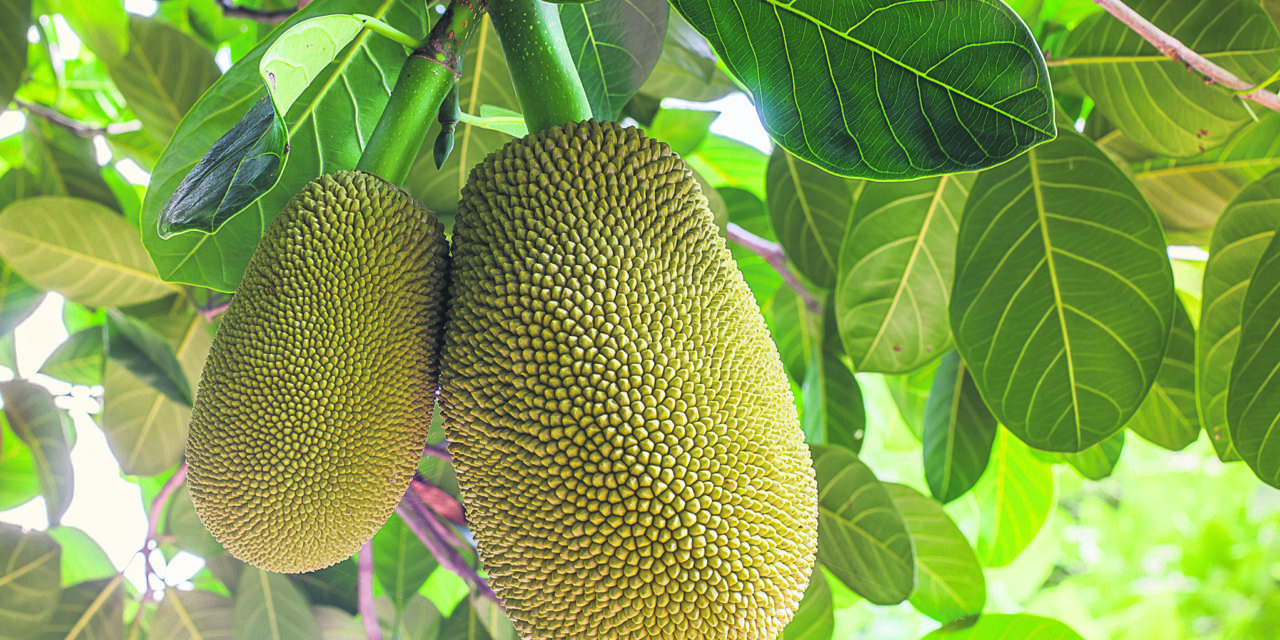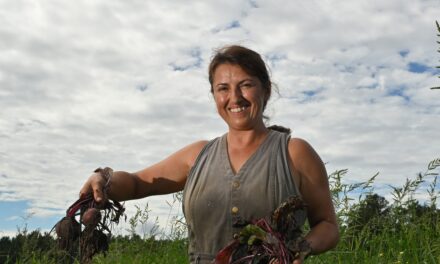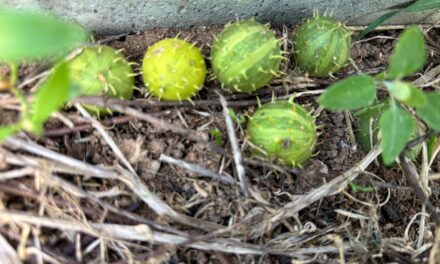AgriFutures Australia is investing nearly $1 million into a new project — Developing ready to market jackfruit products for Australian market growth — which will provide the opportunity for the Australian jackfruit industry to grow through the development of commercially viable processed products.
The Australian Emerging Topical Fruits Strategic RD&E Plan identified jackfruit as a priority for investment and to receive research and development support.
The plan is the result of extensive desktop research and stakeholder consultation across the Australian tropical fruit industry and pulls together specific recommendations for future investment to support the long-term growth and competitive advantage of the Australian tropical fruit industry.
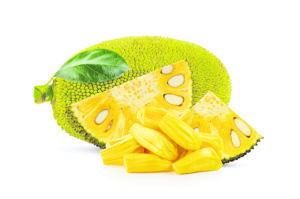
ripe Jackfruit with leaf
AgriFutures Emerging Industries senior manager Olivia Reynolds is excited by the investment into the tropical fruit.
“Jackfruit is a fruit which is realising expansion of plantings in Australia as a result of strong market demand signals for fresh and value-added products that can be differentiated from imports through superior genetics, quality and safety standards,” Dr Reynolds said.
The project will work with growers, processors and retailers to try to build the supply chain from the ground up.
It will focus on the development of three processed jackfruit products, building a processed jackfruit market which will enable Australian growers to increase their plantings or divert excess fruit when the fresh fruit market becomes overwhelmed.
The Northern Territory Government’s Department of Industry, Tourism and Trade (DITT) has received funding from AgriFutures Australia to lead the project, with the University of Melbourne also involved.
DITT project lead Chelsea Moore said jackfruit had so many potential uses beyond fresh fruit.
“The arils can be cooked when they are green for a savoury flavour, the seeds can be roasted like nuts, and other parts can be processed into highly nutritious products,” Ms Moore said.
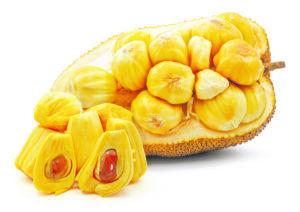
Jackfruit
With so many potential products it is important that the fruit specifications are specific to the product.
The University of Melbourne will be looking at phytochemical characterisation, nutritional composition, sensory, storage stability and packaging requirements. NT DITT will be assessing the harvest windows to meet the product specifications.
University of Melbourne researcher Hafiz Suleria believes the future is bright for the jackfruit industry.
“The jackfruit products will be profiled for nutritional status, taste and consumer acceptance,” Dr Suleria said.
“Packaging will be developed considering shelf life, environmental sustainability and commercial viability.
“There is still some work to be done refining the products and working out exactly when to harvest the fruit for the different products.
“This project aims to help Australian growers and processors achieve their vision of making Australian-grown, value-added products a reality.”
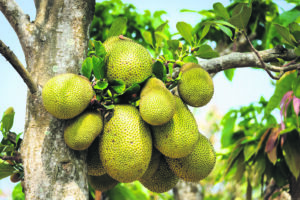
A tropical fruit that grows on a tree of the Mulberry family. It is eaten raw, dried, or in cooked form in Southeast Asia and India. Sometimes called Langka. This cluster is on a tree growing in a village in the Mekong delta of Vietnam.

